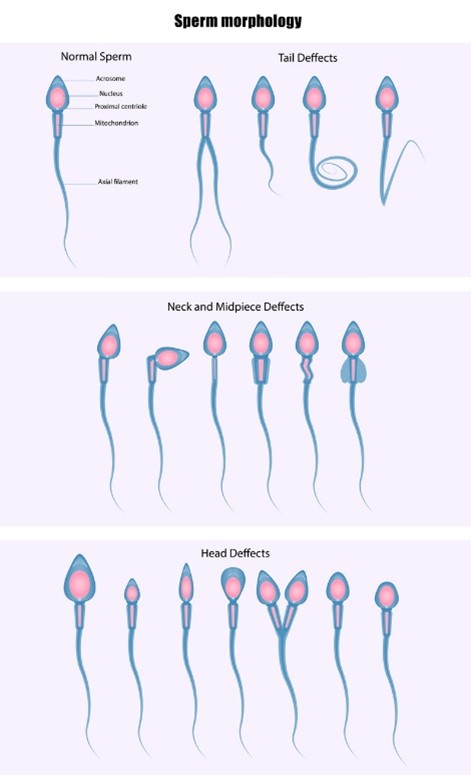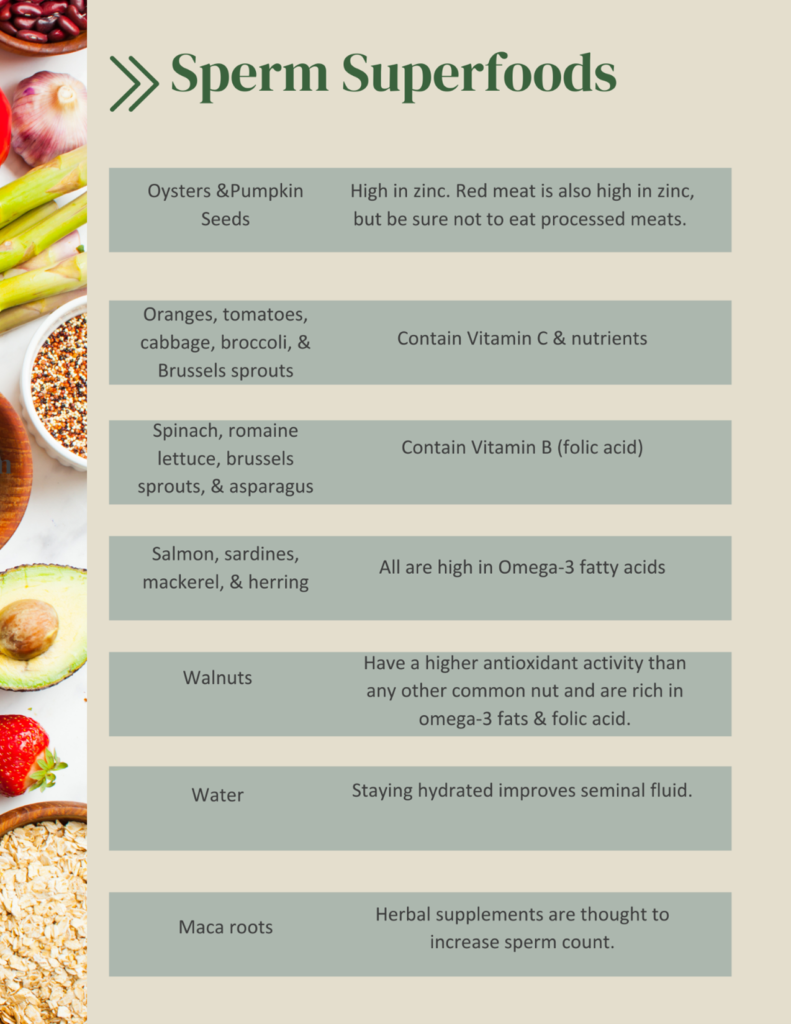Infertility affects about one in every 6 couples trying to achieve a pregnancy. It is estimated that one in every 3 cases is due to fertility problems in the male partner. Based on the World Health Organization (WHO) guidelines, a healthy sperm count is around 15 million sperm per milliliter or at least 39 million per ejaculation. Doctors believe testosterone levels have the most significant impact on sperm number and quality. However, certain inherited medical conditions, infections, and tumors can also impact sperm count. Research shows that sperm counts dropped at least 53% between 1972 and 2011. Scientists have not identified the causes of this decline, although some Scandinavian research suggested that consuming food or drink stored in plastics may be a factor. Sperm count is important because if you do not have enough sperm, there is less chance that the sperm will reach the egg for fertilization.
The good news is that since men produce millions of new sperm daily, even a slight alteration in lifestyle can improve sperm count and quality. Sperm take about 74 days to mature, which means that lifestyle changes can see improvements in about 3 months.
The Terminology
Sperm Motility: this is essentially the ability of the sperm to swim. Sperm motility is measured as the percentage of moving sperm cells in a sample of semen. 50% motility is considered good.
Sperm Count: the total number and concentration of sperm cells in a given amount of semen.
Sperm Morphology: this is the shape of the sperm. Some sperm have large heads or abnormal tails or no tails. The more normal-shaped sperm you have, the easier it will be for the sperm to reach the egg.

10 Ways to Boost Sperm Count
- Exercise – men who exercise regularly tend to have higher testosterone levels than inactive ones. However, too much exercise can reduce testosterone levels, and these men should consider zinc supplements. Stay hydrated as water plays a key role in the production of sperm.
- Vitamin C – there is evidence that Vitamin C may improve semen quality. 1,000miligrams of Vitamin C supplements taken twice a day for two weeks has been shown in one study to increase sperm count and reduce the percentage of deformed sperm cells.
- Vitamin D – low vitamin D levels are often correlated to lower testosterone levels.
- Zinc – low zinc levels are frequently associated with low testosterone levels, poor sperm quality, and increased male infertility.
- Reduce Stress – prolonged stress can raise cortisol levels and lower testosterone levels. Walking in nature, exercising, or spending time with friends can reduce stress.
- Limit your alcohol intake – high alcohol consumption reduces testosterone levels and impairs sperm quality. Five drinks a day is considered a high level. So, in this case, less is more!
- Get adequate sleep: good sleep is vital to maintain your health.
- Stop smoking tobacco and marijuana products – in several studies, smoking was found to reduce sperm count consistently.
- Certain medications have been linked to lower sperm counts. However, often the sperm count returns to normal once the medication is discontinued.
- Too much heat – saunas, steam rooms, and hot tubs are all sperm killers! There is a reason why they are located outside of the body – it is to keep them cool. High temperatures from any source should be avoided, as should tight jeans or briefs. Normal sperm quality and quantity will return 3 months after the event. Avoid resting your laptop on your lap and instead use a laptop board or cooling pad.
Sperm Superfoods
Here are some foods that are considered sperm superfoods:

Implementing healthy eating habits and engaging in regular exercise can be straightforward and yield rapid results. Notably, men who adopt lifestyle modifications such as reducing alcohol consumption, ceasing smoking, adopting a nutritious diet, and incorporating physical activity have significantly improved sperm morphology and count. Increasing your sperm count is a reachable goal.
Author: Karen Synesiou, Infertility Portal, Inc.


